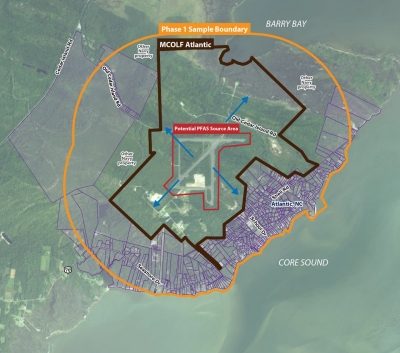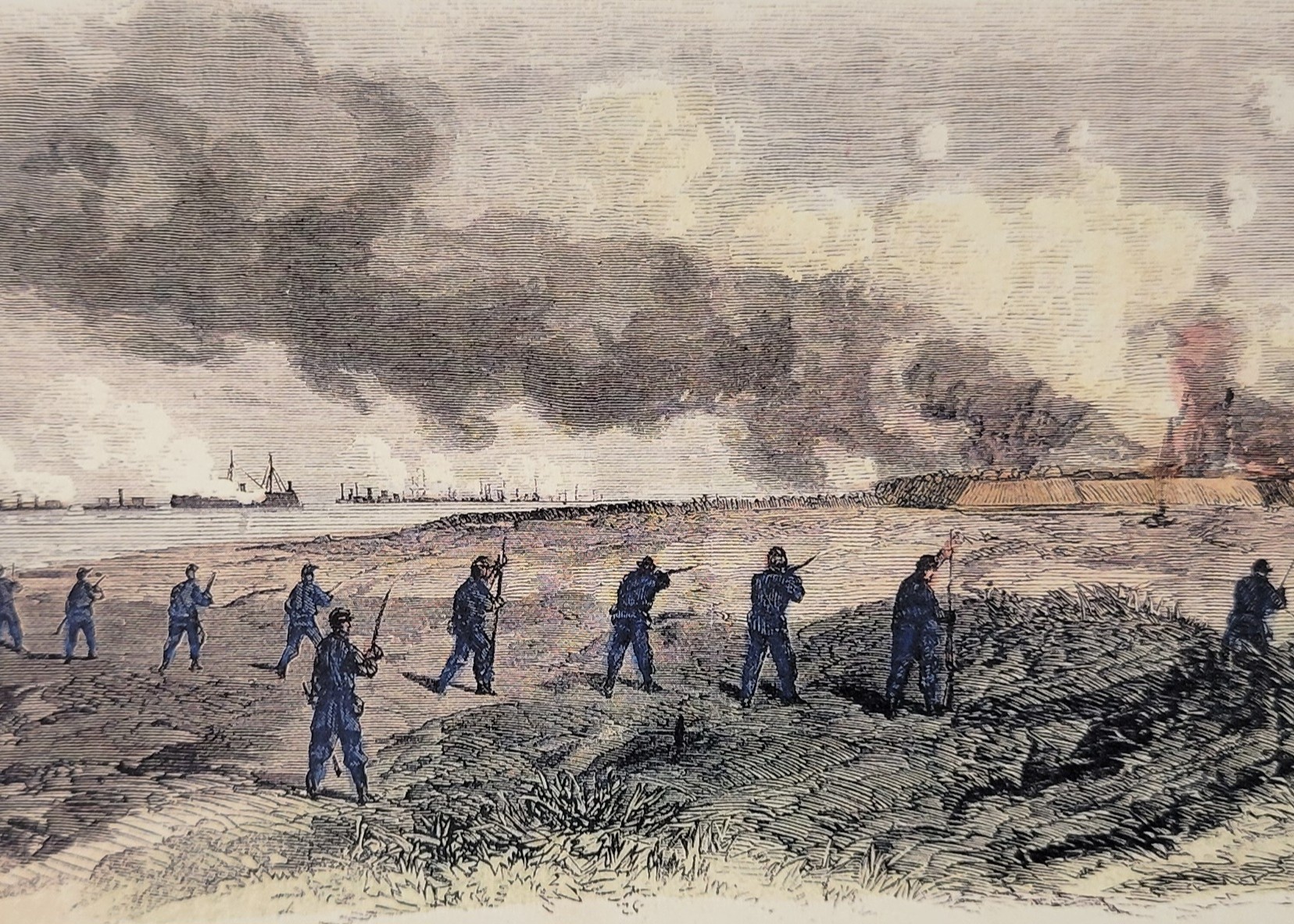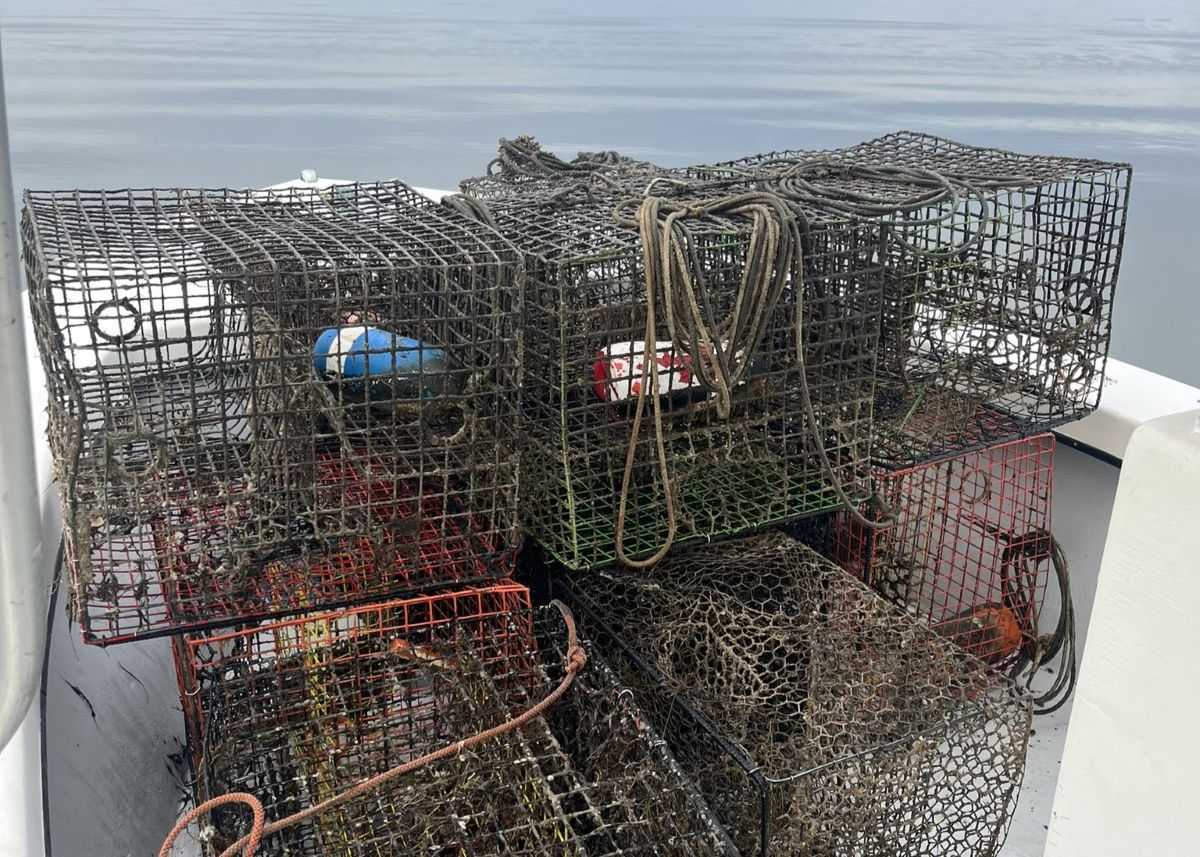
Reprinted from the Carteret County News-Times.
ATLANTIC — The U.S. Navy has completed a second round of voluntary well water sampling in the area surrounding Marine Corps Outlying Landing Field Atlantic and is extending the testing window for any resident who has not yet had their well sampled.
Supporter Spotlight
Navy officials have been testing for the presence of two perfluoroalkyl substances (PFAS) in private drinking water wells within a one-mile radius of the landing field since November. As of the end of March, 258 wells had been sampled.
Mike Barton, communication and operations officer for Marine Corps Air Station Cherry Point, said the Navy decided to further extend the testing window in order to involve as much of the community as possible in the sampling program. The additional data will help inform the Navy’s investigation moving forward.
“Because we’ve had so few people actually sign up for testing, the hope is to get more people involved,” he said. “… Atlantic is a small community, we’d really hope folks will help get the word out.”
The Navy is currently conducting similar testing at facilities around the country out of an “abundance of caution” to determine the potential impact of historic firefighting activities involving substances containing PFAS. There is no record indicating those substances were used at MCOLF Atlantic.
The Navy identified 441 parcels surrounding MCOLF Atlantic that may have been affected by activities at the landing field.
Supporter Spotlight
Of the wells tested so far, 26 indicated the presence of trace amounts of two PFAS chemicals – perfluorooctane (PFOS) sulfonate and perfluorooctanoic acid (PFOA).
Two of those wells had results exceeding the Environmental Protection Agency’s lifetime health advisory standard of 70 parts for trillion for PFOS and PFOA.
Philip Mason of Atlantic has come forward as the owner of one of those wells, telling the News-Times in February the Navy had supplied him with bottled drinking water.
For confidentiality reasons, the Navy will not confirm the identities of the affected properties.
Mr. Barton confirmed the Navy has provided affected property owners with alternate sources of drinking water, including bottled water and water delivery. He said officials are working with residents to determine a long-term solution.
The Navy held two public meetings, one in November and another in February, to inform residents of the sampling program and sign up property owners for testing. Representatives were also on hand from the N.C. Department of Environmental Quality, N.C. Division of Public Health, Agency for Toxic Substances and Disease Registry and the County Health Department.
The Navy also set up a website detailing the MCOLF Atlantic sampling program.
The website includes background information on the sampling program, a timeline of events and links to investigation documents and other resources.
Mr. Barton said the Navy is now investigating whether there is a connection between the landing field and the presence of chemicals in the soil and/or groundwater. To determine whether an on-base source is responsible for the presence of chemicals, the Navy is conducting interviews and searching historic records.
Testing on the MCOLF Atlantic property so far has not detected PFAS chemicals present in the soil or groundwater of the landing field.
PFAS are manmade chemicals found in a number of common household items, including non-stick cookware and water-resistant fabrics.
Although studies on the impact of exposure to PFAS on human health are limited, some research has shown the chemicals to interfere with the body’s natural hormones, increase cholesterol levels, affect the immune system and increase the risk of cancer.
This story is provided courtesy of the Carteret County News-Times, a tri-weekly newspaper published in Morehead City. Coastal Review Online is partnering with the News-Times to provide our readers with news of the North Carolina coast.







